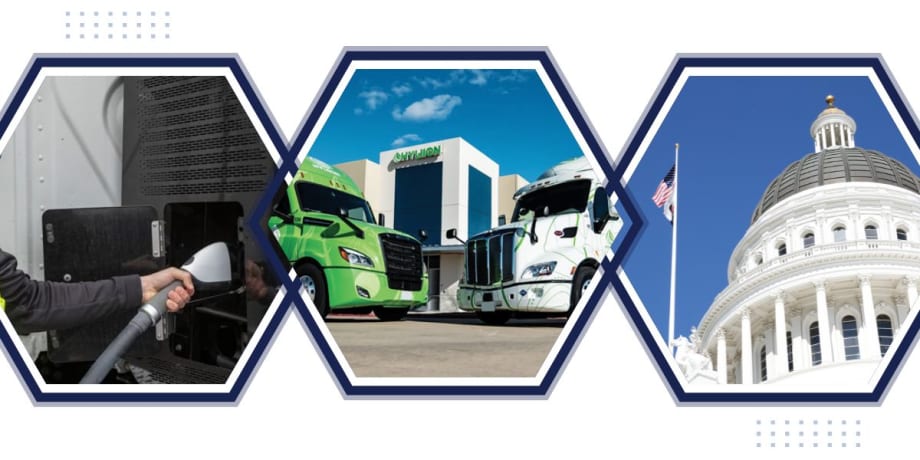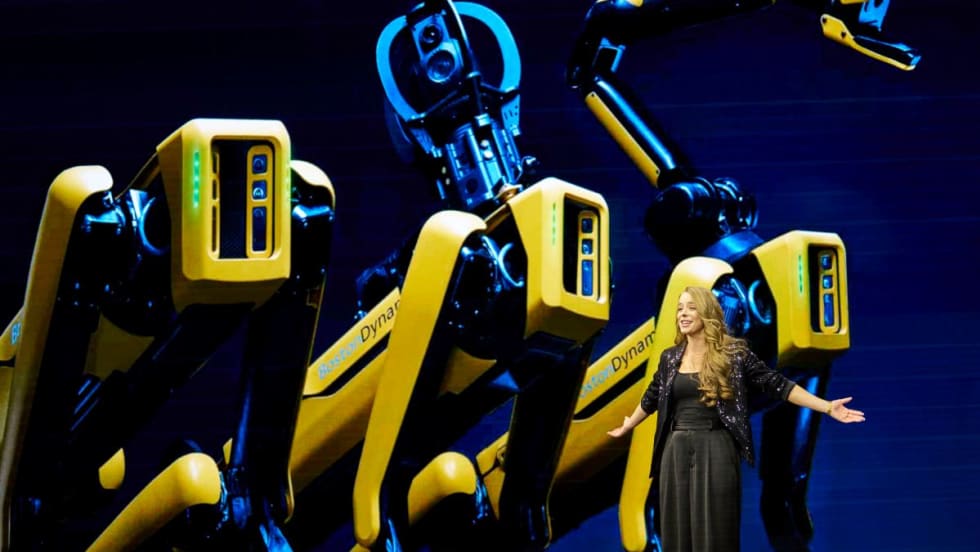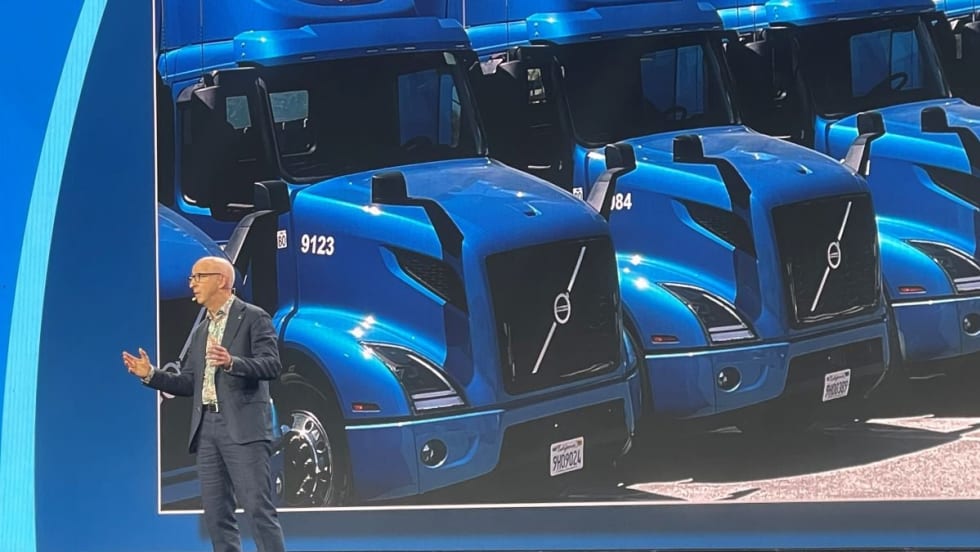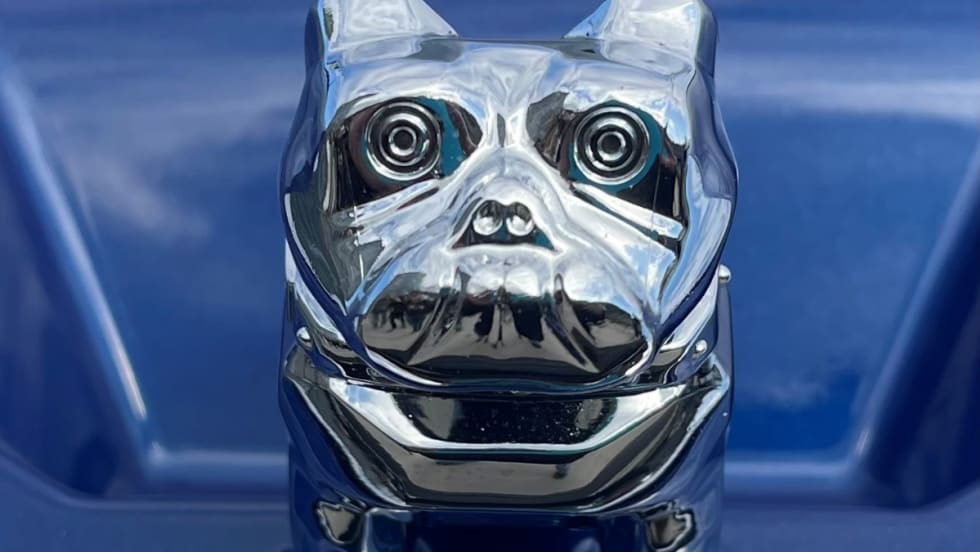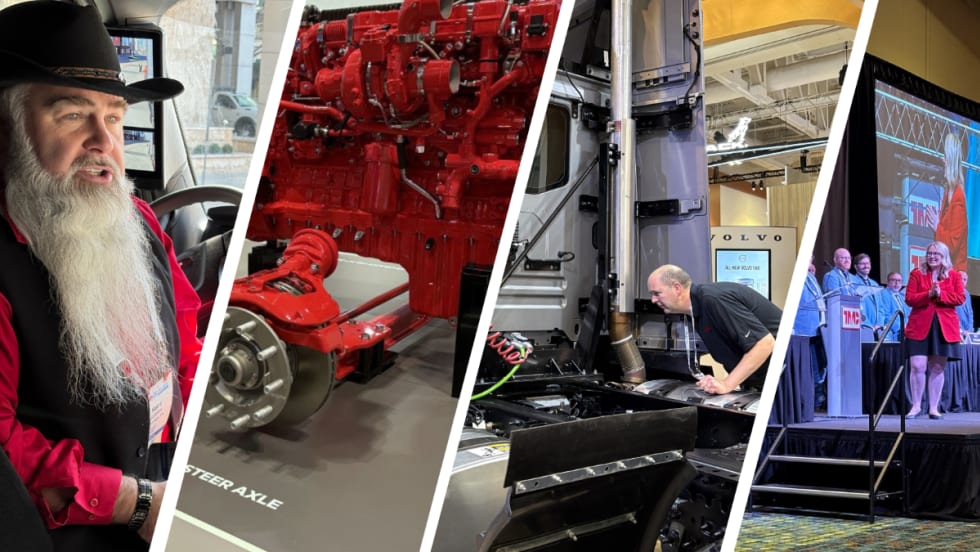‘Tis the season for journalists all over the world, in any industry you can think of, to put pen to paper (figuratively speaking, of course) and tell you what they think is going to happen in the year to come.
Which is silly. I’m just going to tell you right now I have no idea what the trucking industry is going to throw at us in the coming year. We’ve gone from an industry where aerodynamics, low-rolling resistance tires and smaller displacement engines were a big deal to talking about zero-emission and battery-electric trucks, massive infrastructure readjustments, package deliveries by flying robots and – oh, yeah, speaking of robots – trucks that can carry freight from one side of the continent to the other without a human driver on board.
All that noted, let’s get down to it, shall we?
1. The Infrastructure Bill Providing an Economic "Shot in the Arm" for North American Trucking.
Trucking technology is my beat. Not legislation or economic issues. But I still think this is an important topic to keep in mind next year – and one with definite implications for the tech side of trucking’s picture.
We didn’t see much in the way from the Biden Administration’s bipartisan (and seriously overdue) infrastructure bill this past year. After all, it was only passed into law at the dead-end of 2021, and it takes some time for those federal dollars to get into the pipeline in a significant way. But that ought to unquestionably happen by the second quarter of 2023. And, as history shows, any time the United States government makes a significant investment in national infrastructure, the positive shockwaves from the jobs created, the equipment purchased and the new roads, bridges, railroads, ports, canals and buildings that eventual emerge from all that activity ripple across every single segment of our lives and our economy.
More trucks will be sold because of this bill. More goods will be moved because of this bill. Trucking OEMs will be more profitable because of this bill and have more money to make risk-free investments in advanced technology because of this bill. This bill is a good thing for our industry, our economy, our country and our future.
2. Liquid-Fuel Hydrogen/Ethanol Engines Could be a Game-Changer.
As I’ve noted, the biggest truck-tech story of the year to me was the out-of-the-blue news that several engine OEMs, including ClearFlame and Cummins, are working on internal combustion truck engines that can run zero-emissions fuels such as liquid hydrogen or ethanol while delivering performance that is identical to today’s diesel engines.
You don’t have to be a world-renowned futurist like Neil Degrasse Tyson or Dr. Michio Kaku to understand that this news could upend the current technology push in trucking today in major ways.
A year ago today, as I’m writing this, the internal combustion engine wasn’t considered dead yet, by any means. But the general thinking was that its days were numbered. It might hang on for another couple of decades. But battery-electric vehicles and hydrogen-fuel-cell vehicles were – without question – the future of truck powertrains.
Now? Not so much. At least in long-haul applications. According to OEMs, we’re around five years’ away from fully understanding the potential impact this new technology could have – not just on trucking – but our entire society. But it certainly does sound promising. In the coming year, I’ll definitely be looking to learn more about the development of this new ICE technology, in order to get a clearer picture as to just how powerful it will be, and what we can expect to see when the first new ZEV ICEs hit the market.
3. Don’t Count Electric Trucks Out.
I’ve said before, and I’ll say it again: I believe electric trucks – in certain applications – are going to be surprisingly successful. They simply make a lot of sense in urban, local and some regional applications where range isn’t a major concern. On the performance side of the ledger, I think electric trucks have largely proven they’re up to full-blown fleet operations. However, there are still some significant hurdles standing in the way of their widespread adoption: acquisition costs and infrastructure issues. So, I’ll be looking for more developments on those fronts as 2023 gains steam, to get a clearer picture of when and how these trucks will come to market. That said, I think we’re in an introductory period with electric trucks, and don’t really expect to see major movement with these vehicles into fleets for another couple of years.
With that, I’ll simply note that this is an industry that has never failed to surprise me. And there’s simply no telling what will happen in 12 months. But I can guarantee you, it’s going to be an interesting year, regardless of what comes to pass.




